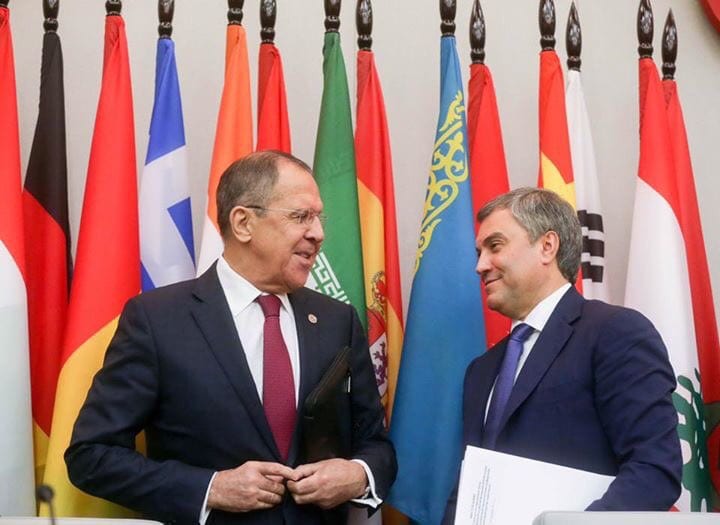Latin America is the birthplace of many narcotic drugs and the region in which the largest drug cartels are located. The war on drug trafficking on the international level has been going on for several decades, and the governments of these countries, together with other states, have accumulated considerable experience.
Drug trade and illegal drug trafficking have become an important public issue in the countries of the Latin American region. The drug business has acquired the features of a well-established illegal business scheme with its economic structure. To date, Latin America continues to be the main coca supplier that is cultivated in the highlands of Colombia, Peru and Bolivia, and cocaine production has been concentrated in Colombia to the greatest extent, but in the past two years it has outstripped Bolivia, which is among the largest producers of all natural drugs and has a very peculiar structure of production.
For a long time, cocaine remained a luxury for the well-to-do strata of the population. In the years 1976-1979 there was an expansion of the American cocaine market. Uncontrolled plantations of drug crops spread in the Andes, which created the possibility of growth of the drug market. Thus, earlier the method of cultivation of coca (for obtaining cocaine) and hemp (raw material for marijuana) was previously leading, but in recent years there have been noticeable shifts in favor of the production of synthetic drugs in illegal pharmacological laboratories.
The problem of drug trade and drug trafficking in Latin American countries, as well as the governmental and international fight against this phenomenon, has been sufficiently reflected in many conferences and forums of world significance. The states of the Latin American region are always active participants in various international meetings devoted to this topic. This year, the conference “Parliamentarians against Drugs”, which was held from the 4th to the 6th of December under the auspices of the UN in Moscow, was the largest platform for discussions on the problem of drug trafficking with a world-wide sound.
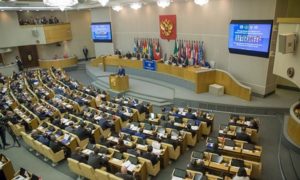
On the 4th of December, the representatives of parliaments from 43 countries of the world arrived in Moscow to participate in the International Parliamentary Conference “Parliamentarians against Drugs”. These days the State Duma of the Russian Federation spoke different languages, but they discussed the common problem for all. Almost fifty countries shared their experiences, practices and opinions: how to save drug addicts, and what laws are lacking today to combat the common “world evil”.
The main purpose of the conference was the formation of a parliamentary dimension of international anti-drug cooperation, in addition, the main tasks were: improving the legal framework, which is aimed at combating the spread and use of narcotic substances, prevention, medical care and treatment of drug addicts. Within the framework of this event, a whole range of important issues was discussed: the struggle against drugs, coordination between countries and security services.
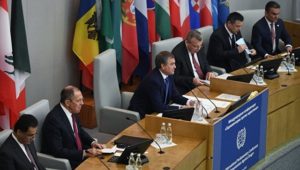
On the 4th of December at the plenary session were the Speaker of the State Duma Vyacheslav Volodin, the Deputy Secretary-General of the United Nations, the Executive Director of the United Nations Office on Drugs and Crime, Yuri Fedotov, the Secretary-General of the Shanghai Cooperation Organization (SCO), Rashid Alimov and the Russian Foreign Minister Serguéi Lavrov. In their speeches, they noted that the international conference “Parliamentarians against Drugs” in Moscow served as a launch for the creation of a parliamentary dimension of world anti-drug cooperation, which until now was absent to a large extent. After all, the parliamentary dimension is constantly developing cooperation in the field of harmonization and unification of national legislations in the field of combating the spread of narcotics and drug trafficking. Also at the opening of the conference, it was repeatedly stressed that the scale of this one of the main threats of the 21st century is growing, parliaments must necessarily actively cooperate on a wide range of issues of this topic.
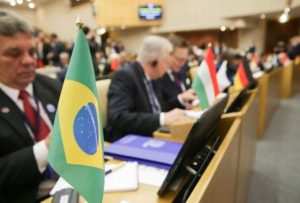
According to the official information of the department, the leaders and deputies of parliaments of various countries arrived in Moscow. The Latin American states took an active part: Mexico, Brazil and Ecuador.
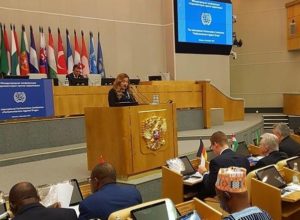
In her speech, María Ávila Serna, the Vice President of the lower house of the General Congress of the United States of Mexico, noted that for Mexico the problem of combating drug trafficking remains one of the most important issues on the political agenda, and also highlighted the role of terrorist groups that are acting around the world and provoking production growth drugs and their exports. According to the representatives of the Mexican delegation, it is possible to fight this threat consistently and effectively only together.
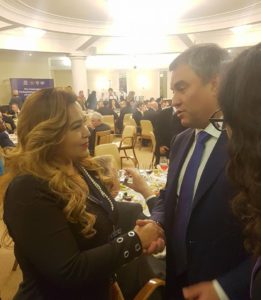
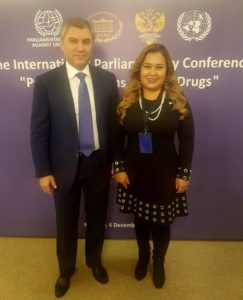
The President of the Supreme State Legislature, the National Assembly of the Republic of Ecuador, José Serrano offered to discuss in the framework of the conference the achievements in the fight against drug trafficking achieved by Ecuador. He noted that since 2008 the country has been actively combating illicit drug trafficking and considers this problem as one of the most important strategic directions of state policy, taking into account the issues of personal orientation, in particular the spread of drugs among the most vulnerable groups of the population, through the integration of gender, intercultural and intergenerational components. In this regard, he recalled that in the past two years, the Republic of Ecuador has reached record levels in the seizure of drugs, as well as in reducing the level of violent crimes in the country. José Serrano specified that the National Assembly is currently drafting the Law on the Participation of Citizens in Combating Illicit Drug Trafficking. This project is focused on diagnostics, comprehensive prevention, education and rehabilitation, with special emphasis on the implementation of measures aimed at protecting children and youth. According to the information published by the National Assembly of the Republic of Ecuador, Serrano said that next year the legislative power of Ecuador will commit itself to concentrating law-making activities in the field of combating drug trafficking, linking it with the Sustainable Development Goals adopted by the government until 2030. According to representatives of the Ecuadorian delegation, combating illicit drug trafficking, the crime associated with this problem are an important part of the global agenda.
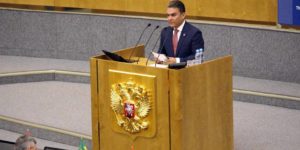
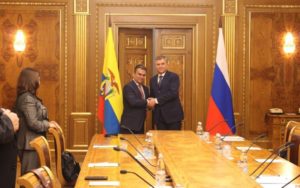
The chairman of the State Duma of the Russian Federation, Vyacheslav Volodin, in his final speech emphasized that the drug threat is a threat to all mankind. The drug trade nourishes organized crime, the proceeds from drug trafficking form a vast financial base for international terrorist organizations. Volodin noted the dynamic development of new synthetic drugs, as well as the fact that their formulas are constantly being updated, however, national legislations equally classify the same narcotic drugs, and drug abuse takes advantage of this.
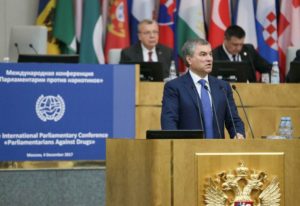
Within the framework of the conference “Parliamentarians against Drugs”, in one of the corridors of the State Duma of the Russian Federation it could observe a symbolic photo exhibition where participants and guests of the event could see photos of those who could not imagine their lives without drugs, and now cannot live without their beloved family, work, children. Some of the heroes of the pictures arrived at the international conference in order to prove by their example: there are former drug addicts. And besides, they should not be embarrassed or avoided, they need to be helped at all levels: from the employer and the family to the state and the international community.

